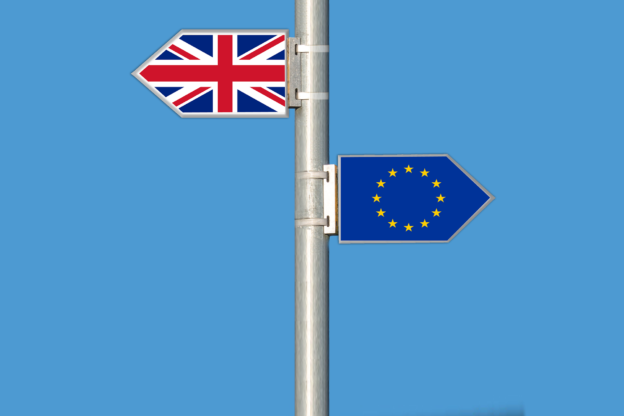The United Kingdom (hereinafter “the UK”) left the European Union (hereinafter “the EU”) on 31 January 2020. The withdrawal agreement between the EU and the UK provided for a transitional period which expires on 31 December 2020 and which can no longer be extended. On 1st January 2021, the UK will leave the internal market and the Customs Union, thus putting an end to the free movement of persons, goods and services. The EU and the UK will become third countries and thus re-establish customs formalities.
- In the United Kingdom
Pending a future free trade agreement, on 1st January the British will apply their new external tariff, the UK Global Tariff (UKGT), which is lower than the EU’s common external tariff: an average reduction of all applicable duties and the elimination of “nuisance tariffs” (tariffs below 2%). Could this be the beginning of “Singapore on the Thames”?
The re-establishment of the customs border will be carried out in three stages.
- On 1st January 2021, for “standard” goods, basic customs requirements such as stock accounting and reverse charge of import VAT will be Under certain conditions, the declaration of standard goods may be deferred for up to 6 months from the time of import. For goods “subject to controls and excise duties”, from 1st January 2021 a standard customs declaration will be required, physical controls at the point of destination will be introduced and traders will be obliged to pre- declare certain movements. Freight forwarders will have to transport and present the goods and the Transit Accompanying Document (TAD) at a transit office. The computerized Goods Vehicle Movement Service (GVMS) system will be introduced for transit on 1st January 2021. From 1st January 2021, export declarations and safety and security declarations will be required for all goods on exit from Great Britain. In addition, the SMART Freight Service will also be introduced to ensure that only vehicles with the correct customs and import/export documents for EU import controls travel to the EU.
- By April 1, 2021, all animal products, regulated plants, and plant products will require pre- notification and adequate health Physical controls will be maintained at the point of destination
- By 1st July 2021, customs declarations will have to be made for all goods at the point of import and the corresponding duties will have to be Safety/Security declarations will be required at export and import. SPS (Sanitary & Phytosanitary) goods will have to be presented at the relevant Border Control Post (BCP). GVMS (Goods Vehicle Movement Service) will be implemented for all movements: import, export and transit.
In order to carry out all these formalities, French operators responsible for importing goods into the UK or having a subsidiary in the UK must have an EORI number.
- In France
On export, operators will have to carry out formalities at a customs office (dematerialized on the DELTA system) a customs declaration allowing goods to be identified and to apply, depending on their nature, the rules of origin and value, tax rules or standards in force. In addition, operators will have to notify the exit of Union products to the “customs office of exit” of the European Union (via the ECS system).
A customs declaration will also have to be notified on the import of goods from the UK. In addition, the ICS procedure will now have to be observed with the onlinetransmission of the Entry Summary Declaration (ENS) and the Notification of Arrival Transmitted by the carrier to the Customs Authorities (DELTA).
Obtaining an EU EORI number is essential for UK operators in order to carry out import/export formalities in connection with French customs.
As regards VAT, the rules on declarations are maintained in France for operators in the UK. However, the management of refund applications is evolving.
To keep the flow of goods moving smoothly, a smart border is being set up between the UK and France. Its implementation will enable the anticipation of declarations before arrival at the border post and the automation of data flows so that vehicles do not have to stop systematically at the border.
Discussions are ongoing between the UK and the EU to reach a free trade agreement that will allow the UK and the EU to move from being third countries to trading partners.
***
The Customs and International Trade team of DS Avocats is at your disposal to provide you with any further information you may require.
CONTACT US :

